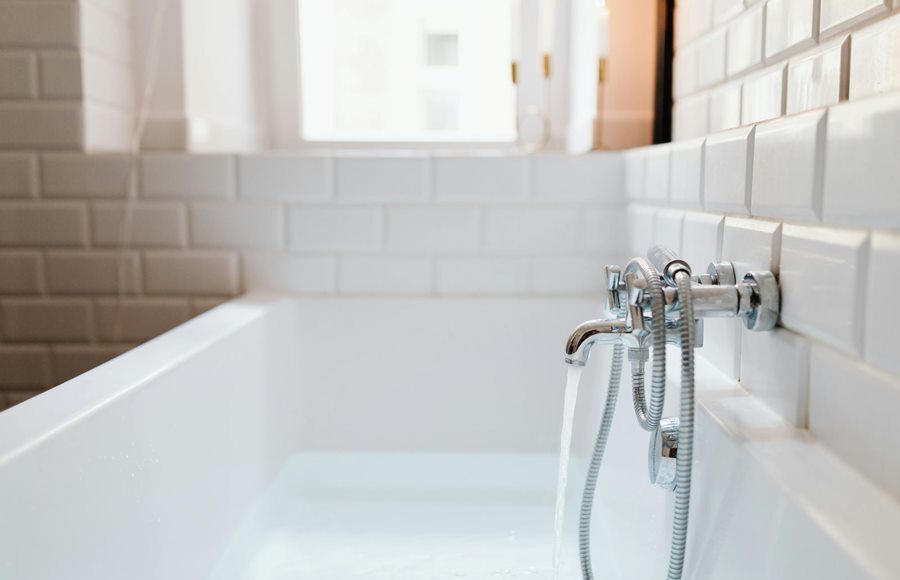If you live in a region with high levels of humidity, you know that it can wreak havoc on your home—especially your plumbing system. From increased risk of corrosion to mold growth, there are many challenges that come with living in a humid environment. But don’t worry, we’ve got you covered with these eight helpful tips to keep your plumbing system running smoothly. Now let’s dive in and learn how to navigate the unique challenges of plumbing in humid places!
Regularly Check for Mold Growth
Humidity can create the perfect environment for mold growth, which not only poses health risks but can also cause damage to your plumbing system. Make it a habit to regularly check for any signs of mold growth in your home, especially in areas where there is frequent water usage such as bathrooms and kitchens. If you notice any mold, address it immediately and also consider investing in a dehumidifier to control the moisture levels in your home.
If you find that the mold problem in your home is extensive, it’s best to call in a professional to assess and address the issue. They will have the necessary equipment and expertise to effectively remove the mold and prevent it from coming back. It’s vital to your home and your health not to ignore mold growth as it can lead to serious health issues for you and your family.
Clean Your Drains Regularly
With increased levels of humidity, comes an increased risk of clogged drains. The moist air can cause debris and hair to stick together, leading to blockages in your pipes. To prevent this from happening, make sure to regularly clean out your drains using a mixture of hot water and vinegar. You can also use a drain snake or plunger for tougher clogs.
Having some items handy can make maintaining clean drains even easier. Drain screens are a great way to catch any debris before it goes down the drain, reducing the chances of clogs. You can also use enzymatic cleaners or baking soda and vinegar solutions periodically to keep your drains clear. Another helpful tool is a drain snake, which can be used to remove stubborn clogs deep in the pipes.
Keep an Eye on Your Water Bill
Living in a humid place means dealing with increased levels of moisture in the air, which can also lead to higher water bills. Keep an eye on your monthly water bill and if you notice a significant increase, it could be a sign of a leak or other plumbing issues. Don’t ignore this as it could end up costing you more money and causing bigger problems down the line. Address any potential leaks or plumbing problems as soon as possible to avoid further damage.
If you do notice a spike in your water bill, it’s always a good idea to call in a professional plumber, such as someone at Robert L Phillips Plumbing. They have the expertise and tools to accurately diagnose and fix any leaks or plumbing issues in your home. Plus, they can also provide preventative maintenance tips to help you avoid future problems caused by high humidity levels.
Inspect Your Water Heater
High humidity levels can also cause your water heater to work harder and potentially lead to corrosion. Be sure to regularly inspect your water heater for any signs of damage, such as rust or leaks. If you notice any issues, it’s best to call a professional plumber to address the problem.
Check Your Washing Machine Hoses
The moisture in the air can also affect your washing machine hoses, causing them to deteriorate faster and potentially leading to leaks. Make sure to regularly check your washing machine hoses for any cracks or bulges and replace them if needed. It’s also a good idea to turn off the water supply when not in use to prevent constant exposure to moisture.
Use Ventilation
Proper ventilation is key in controlling humidity levels in your home. Make sure your bathrooms, kitchen, and laundry room have proper ventilation systems in place to reduce moisture buildup. You can also open windows and use fans to circulate air and help lower humidity levels.
To get a head start on proper ventilation, you can start by checking with your local hardware or home improvement store. They often carry a variety of ventilation systems and products to choose from. If you’re unsure which option would work best for your home, don’t hesitate to ask for recommendations from an employee or do some research online. There are also companies that specialize in installing and maintaining ventilation systems, so consider reaching out to them for professional advice and assistance.
Check Your Sump Pump
If you live in an area with high levels of humidity, you ought to have a sump pump installed to prevent flooding and water damage. Make sure to regularly check and maintain your sump pump, especially during the rainy season when moisture levels are at their highest.
Schedule Regular Plumbing Maintenance
Last but certainly not least, regular plumbing maintenance is crucial in humid places. Hire a professional plumber to inspect your plumbing system at least once a year to catch any potential issues before they become major problems. This will not only save you money in the long run but also give you peace of mind knowing your plumbing system is in good condition.
Humid climates can pose unique challenges for homeowners, but with these 8 plumbing tips, you can keep your home’s plumbing system running smoothly and avoid any major issues. Remember to stay vigilant and address any potential problems as soon as possible. Your pipes will thank you! So don’t sweat it, follow these tips and enjoy living in a humid place without worrying about your plumbing.
Apart from that if you want to know about “What Is Patio Cover? A Detailed Guide About Cost Of Patio Cover” then please visit our “HOME IMPROVEMENT” Category.












